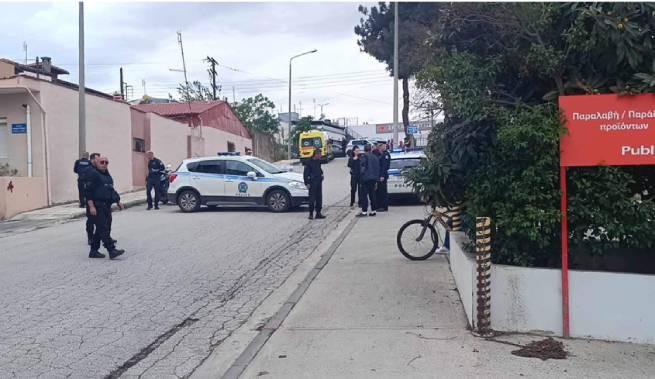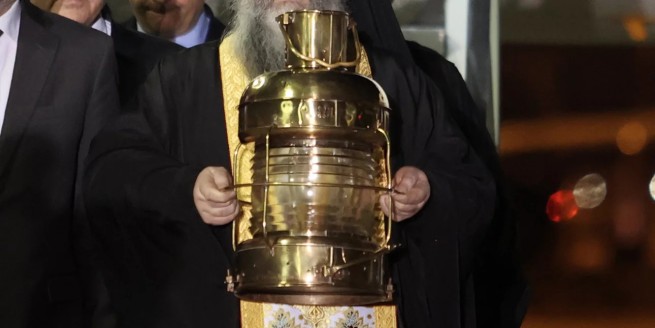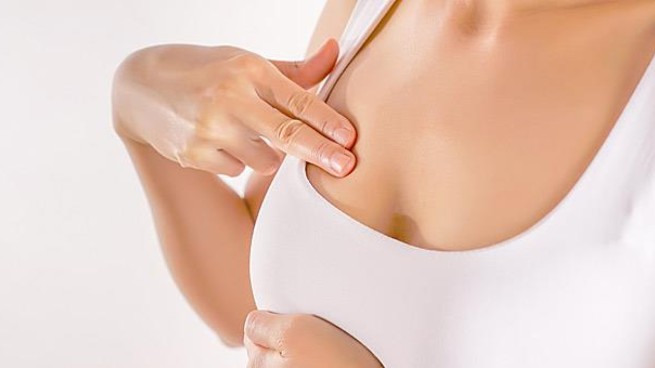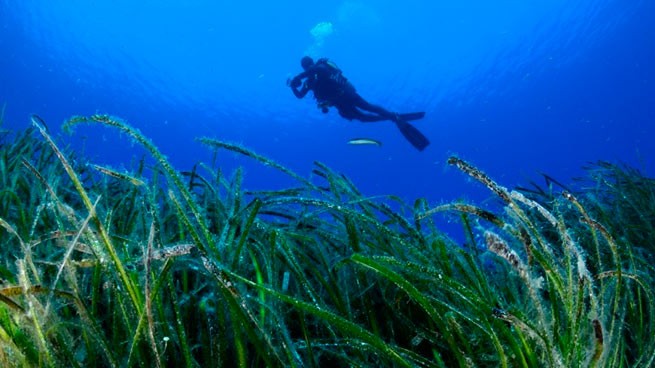Beneath the surface of the sea lie so-called “blue forests”, or meadows of the sea grass Podonia, which grow in abundance on the seabed, creating one of the most valuable habitats in the Mediterranean.
“They are almost everywhere, but they are not algae. They are ordinary plants. Marine flowering plants, the same as those we see on the shore. Essentially, they migrated to the sea from the shore.” WWF biologist Vaggelis Paravas told the Athens-Macedonian News Agency.
According to him, Podonia seagrass meadows represent “small miracle”which is not found anywhere else in the world and provides valuable “ecological services” to both humanity and the marine life that find refuge there. “Posidonia is a plant species that exists only in the Mediterranean. We do not find it anywhere else in the world. It is very common, but at the same time very important for marine ecosystems.”– said Paravas.
He noted that these plants not only protect beaches from erosion by serving as fertilizer for plants containing sand, but also act “blue carbon absorbers” removing carbon dioxide from the atmosphere.
“Posidonia is found in shallow water, at a depth of up to 45 m, precisely because this plant needs sunlight for photosynthesis,” he said, – and, in addition, it is very sensitive to water purity, pollution and cloudiness.” He noted that every square meter of a healthy seagrass meadow produces up to 20 liters of oxygen per day, and “blue forests” store about 10% of the carbon absorbed by the oceans each year.
“Fortunately in our country, in most areas there is no significant pollution, only in closed bays and ports. Therefore, when we see the long leaves of Podonia, we have every reason to swim without fear, because the sea is clean and attractive not only for swimmers, but and for hundreds of fish and marine life,” – he added.
The only threat to seagrass is human activity, and the most significant threat to seagrass in Greece at present is ship anchoring, Paravas said.
Although grasslands are considered a priority protected habitat in EUand many areas of Greece have received NATURA status, protecting them from harmful fishing practices using nets that drag on the seabed, anchoring is now negatively impacting the health of the Poidonia meadows.
Paravas noted that anchors damage sea grass not only where they are set, but also with their chains and the circular movement of boats, which create large clearings of damaged sea grass around each anchor. “With a large number of watercraft, the repeated threat will eventually completely uproot the Podonia leaves and the meadow will die,” – he added.
Recovery takes a very long time, Paravas noted, and if ecosystems are too destroyed, they turn into “sea deserts” where nothing lives. At this point, carbon dioxide trapped in the leaves and roots is released back into the atmosphere.
WWF, the Hellenic Marine Research Center and the Cyclades Conservation Foundation, together with partners from France, Tunisia and Turkey, have joined forces to protect these marine carbon sinks through a project “Blue forests of the Mediterranean.”
The project aims to assess their size and the degree of threat posed by uncontrolled anchorages, using satellite and other data, as well as data from Giaros and the Lesser Cyclades Islands, which are important tourist sites, to assess the pressure on these ecosystems.
Among the measures proposed to protect seagrass meadows are the installation and licensing of permanent anchorages riveted to the seabed, which cause less damage, and efforts to involve local communities in their protection and management.







More Stories
Weather forecast: rain and storms in Athens and Thessaloniki on Saturday
Easter with… umbrellas: unstable weather in the coming days – where will it rain
Thodoris Kolidas explains the phenomenon "black sky" on Good Friday